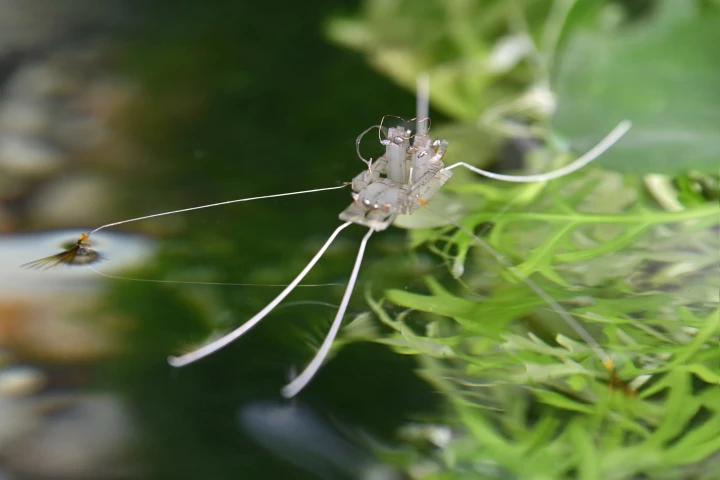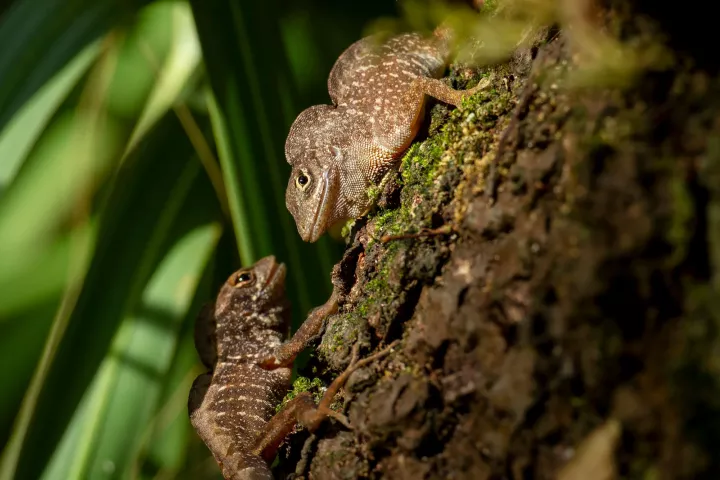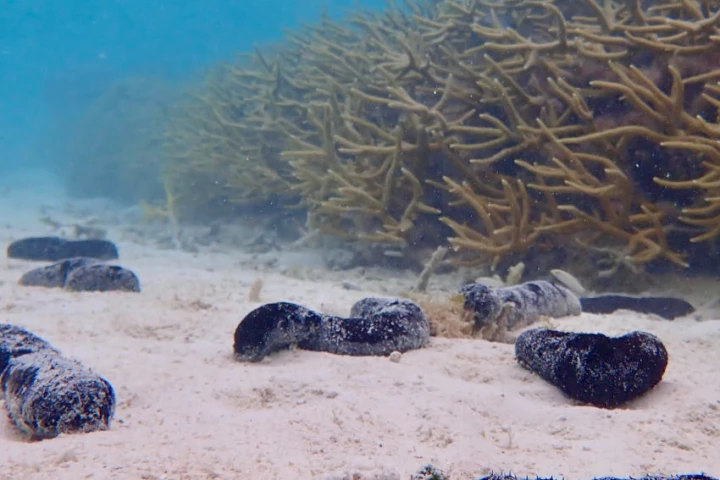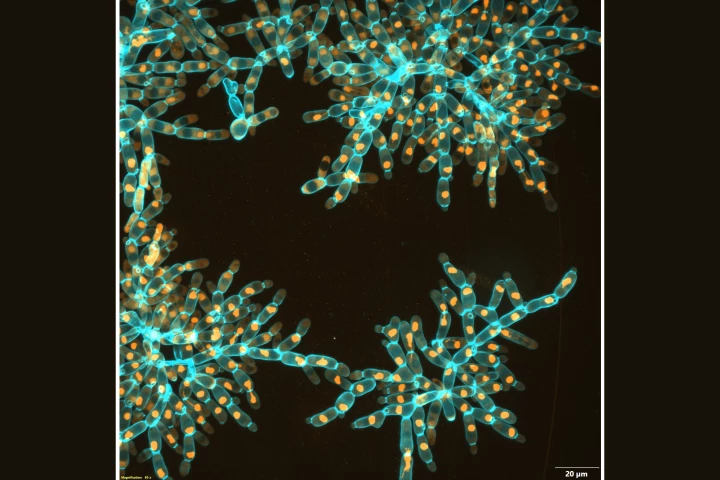Georgia Tech
-
Georgia Tech takes vision for soft robots to the next level with PHySL, a biomimetic photo-responsive hydrogel soft lens that focuses using light alone. It does away with electronics, wires, bulk, and the dangers of breaking.
-
Although we've seen many robotic water striders over the years, scientists are still finding new aspects of the insects to replicate. Recently, for instance, researchers created a strider-bot that zips across the water's surface via fans on its feet.
-
We often see the results of evolution, but not the process directly. Now, scientists have witnessed evolution unfolding in real time, as two similar lizard species encounter each other for the first time and quickly adapt to fill different roles.
-
Music can enhance our ability to learn new information and positively alter existing memories, according to two recent studies. The findings could inform music-based interventions for conditions such as PTSD, depression and dementia.
-
To help combat the rise of antibiotic-resistant bacteria, researchers have been experimenting for years with drug-free methods to blast disease-causing bugs. A new type of stainless steel does exactly that, in a convenient and affordable way.
-
A single-shot vaccine that protects against multiple coronaviruses, including the one that causes COVID-19, has been developed. It erased all viral traces from the lungs of animal subjects, opening a pathway for a similar human vaccine.
-
Although the humble sea cucumber may not look like much, it could soon be recruited to help save the world's coral reefs. The bottom-dwelling animals have been found to play a vital role in protecting corals from harmful bacteria.
-
Scientists have given yeast a brand new ability – gaining energy from light. The technique was remarkably easy, the team says, and could not only help us understand evolution but make better beer and biofuel.
-
The animal kingdom has no shortage of weird and wonderful surprises, and this year biologists gave us some real treats to talk about. From microscopic bacteria to huge cetaceans, here are the most bizarre animal stories we covered in 2023.
-
Scientists are conducting a long-term experiment on evolution to investigate how single-celled organisms could evolve into multicellular lifeforms. After thousands of generations, their yeast grew 20,000 times bigger and 10,000 times tougher.
-
Although biped and quadruped robots may excel at traversing uneven terrain, they require multiple sensors and complex algorithms in order to do so. Scientists have now taken a "simpler" approach, by creating a robotic centipede.
-
We’re willing to bet you’ve never given much thought to how bugs urinate, but even if you did you probably wouldn’t imagine them using butt-based pinball paddles to flick drops of pee at 40 G’s, using physics never before seen in nature.
Load More











